- Georgia Military College is a public-independent educational institution, comprised of a junior college and a separate preparatory school (grades 6-12), whose mission and purpose is to produce educated citizens by providing junior college students with a liberal arts based two-year undergraduate curriculum, by providing selected college students with ROTC training, and by providing preparatory school students an inclusive college preparatory curriculum that includes a military training component-all in an environment conducive to the holistic development of the intellect and character of its students.
School Highlights
Georgia Military College-Warner Robins Campus serves 1,270 students (58% of students are full-time).
The college's student:teacher ratio of 32:1 is higher than the state community college average of 18:1.
Minority enrollment is 46% of the student body (majority Black), which is less than the state average of 61%.
Quick Stats (2025)
- Enrollment: 1,270 students
- Student:teacher ratio: 32:1
- Minority enrollment: 46%
- Source: Integrated Postsecondary Education Data System (IPEDS)
School Overview
The teacher population of 40 teachers has stayed relatively flat over five years.
Georgia Military College-Warner Robins Campus
(GA) Community College Avg.
Carnegie Classification
Associate of Arts Colleges
Associates--Public Rural-serving Medium
Institution Level
Less than 2 yrs
At least 2 but less than 4 years
Institution Control
Public
Public
Total Faculty
40 staff
209 staff
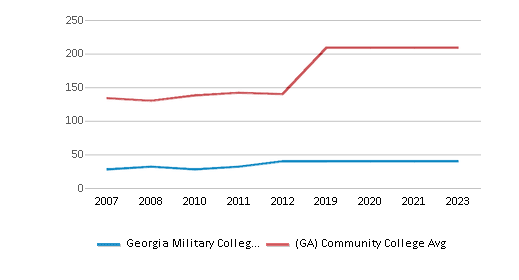
School Calendar
Student Body
The student population of Georgia Military College-Warner Robins Campus has stayed relatively flat over five years.
The student:teacher ratio of 32:1 has stayed the same over five years.
The Georgia Military College-Warner Robins Campus diversity score of 0.60 is less than the state average of 0.71. The school's diversity has stayed relatively flat over five years.
Total Enrollment
1,270 students
2,242 students
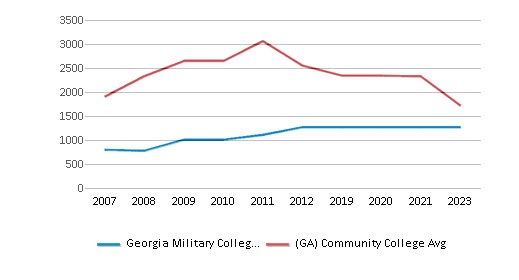
Student : Teacher Ratio
32:1
18:1
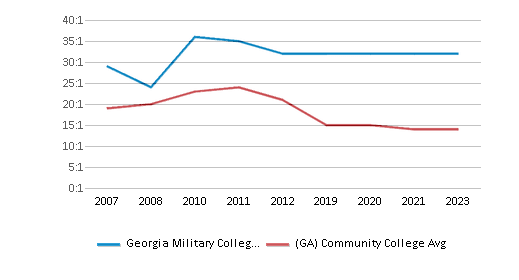
# Full-Time Students
738 students
882 students
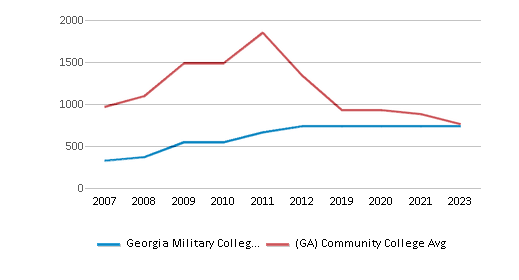
# Part-Time Students
532 students
1,722 students
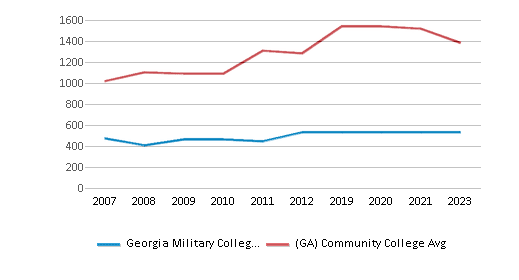
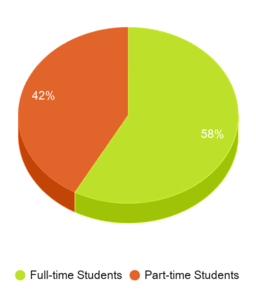
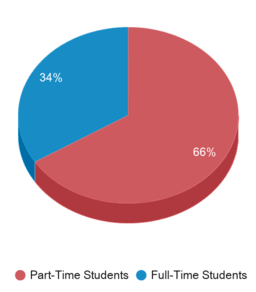
# Enrollment Undergraduate
n/a
299 students
# Full-Time Undergraduate Students
1,270 students
929 students
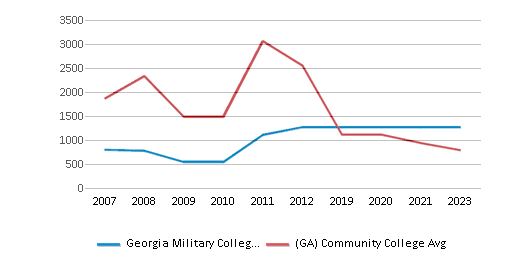
# Full-Time Graduate Students
n/a
87 students
# Part-Time Undergraduate Students
n/a
1,891 students
# Part-Time Graduate Students
n/a
53 students
Total Dormitory Capacity
n/a
654 students
% Asian
2%
4%
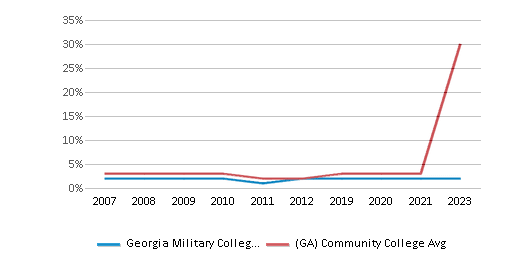
% Hispanic
3%
10%
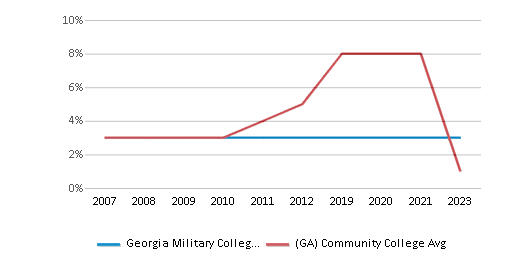
% Black
32%
35%
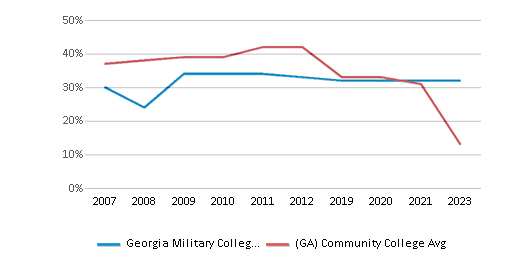
% White
54%
39%
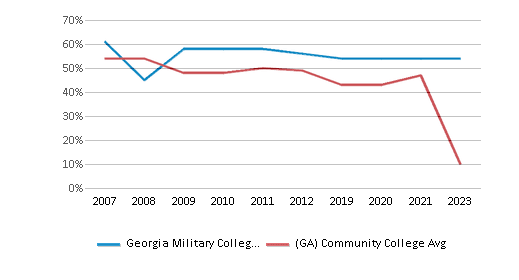
% Hawaiian
n/a
1%
% Two or more races
6%
3%
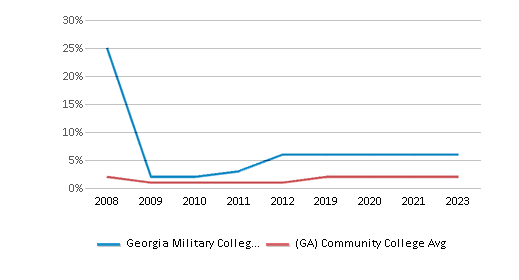
% Non Resident races
n/a
1%
% Unknown races
3%
7%
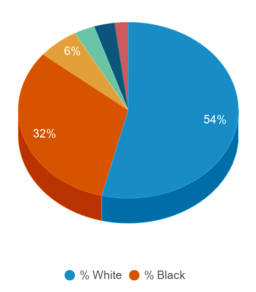
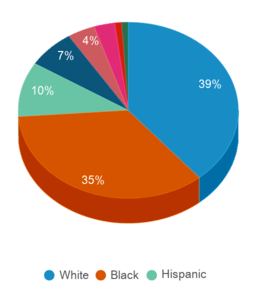
Diversity Score
0.60
0.71
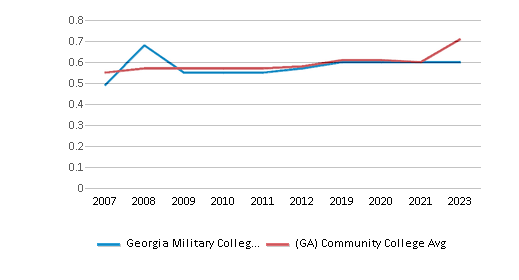
College Completion Rate (Students who graduate in less than 4 years)
32%
31%
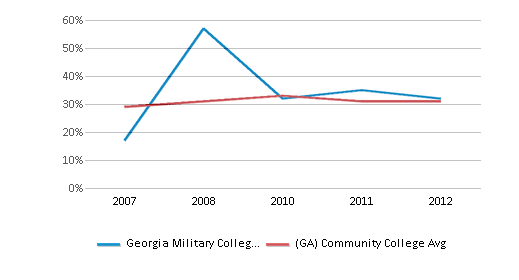
College Completion Rate (Students who graduate in 4 years or more than 4 years)
n/a
0.2368%
Average Graduate Earnings (10 Years)
$35,000
$30,600
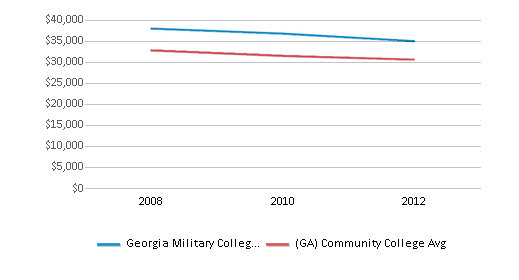
Tuition and Acceptance Rate
% Students Receiving Some Financial Aid
n/a
93%
Median Debt for Graduates
$9,187
$9,187
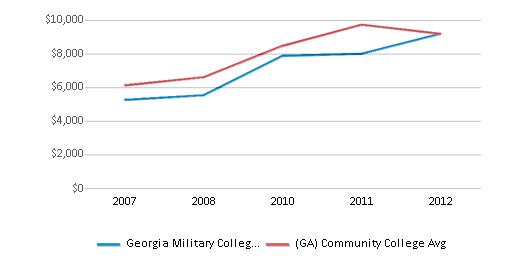
Median Debt for Dropouts
$3,500
$3,667
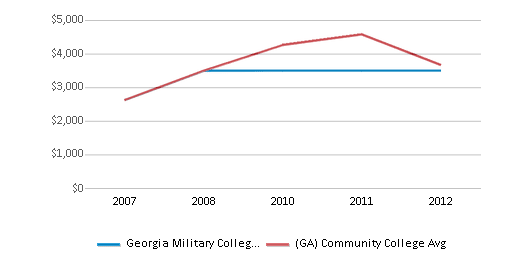
Acceptance Rate
n/a
75%
SAT Reading
n/a
465
SAT Math
n/a
450
SAT Writing
n/a
465
ACT Composite
n/a
18
ACT English
n/a
18
ACT Math
n/a
18
ACT Writing
n/a
7
Source: 2023 (or latest year available) Integrated Postsecondary Education Data System (IPEDS)
Frequently Asked Questions
What schools are Georgia Military College-Warner Robins Campus often compared to?
Georgia Military College-Warner Robins Campusis often viewed alongside schools like Central Georgia Technical College by visitors of our site.
Recent Articles

Obtaining Your Bachelor's Degree at a Community College
Explore the evolving landscape of community colleges offering bachelor's degrees, addressing affordability, accessibility, and workforce needs.

A to Z of Community College Certificates and Courses
From business and healthcare to technology and skilled trades, the article showcases the breadth of options available to students seeking to enhance their knowledge, develop new skills, or pursue career advancement.

What is a Community College?
This comprehensive guide explains what a community college is, its history, and its role in higher education. It covers the types of programs offered, differences from four-year colleges, benefits of attending, and important considerations for prospective students, providing valuable insights for those exploring educational options.





